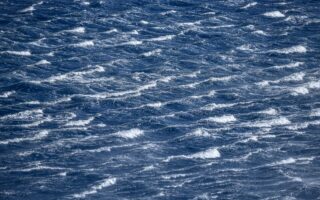Rise in flooding also due to poor defenses
Increasing instances of the phenomenon are not solely due to extreme weather, climate change

The floods in Greece on Thursday again brought to fore the question of why they are increasing in frequency and the realization they cannot be attributed exclusively to extreme weather phenomena and climate change.
Athens was among the areas that bore the brunt of thunderstorms and heavy rainfall, with flooded streets, power outages and public transport disruptions.
Experts note that Greece has a highly homogeneous topography favoring flash floods. Changes in land cover and use seem to play a more important role than the increase in rainfall. Moreover they stress that outdated (either technically or in terms of capacity) flood defenses also contribute to the problem.
Scientific studies published in recent years show the areas most frequently affected by floods are Attica, Thessaloniki, the large cities of Thessaly, the Peloponnese and Crete, and the Evros River area.
“In recent years, of course, serious floods have occurred in areas that had not faced similar problems, such as Mandra in Attica and Mouzaki in Karditsa,” says Vangelis Baltas, professor of hydrology and water resources management in the Civil Engineering Department at the National Technical University of Athens. “Floods have always occurred in our country. Greece has about 18,000 kilometers of coastline, which means a very large number of catchment areas, which are usually relatively small in size. These basins are rapid-response, meaning that the time for water to accumulate in such quantities as to cause a flood is short,” he said.
What seems to have increased in recent years, he notes, is not only the number of floods, but also their adverse effects.
“This is probably due to changes in land cover and land use due to construction and urbanization and, of course, climate change,” Baltas says, noting human interventions in river basins and the fact that infrastructure is often outdated.
Human interference was also noted by Michalis Diakakis, a research associate at the University of Athens, who has been systematically studying flooding phenomena in recent years. “In my opinion, the main issue is human interference in streams. When streams have a floodplain shaped by nature, which is needed for the water to descend unhindered to the sea, and man has built obstacles in it – roads, buildings, structures – this in itself makes it difficult for it to function smoothly. Streams flood more easily and more often, and for this reason we have had more disasters in recent years.”





